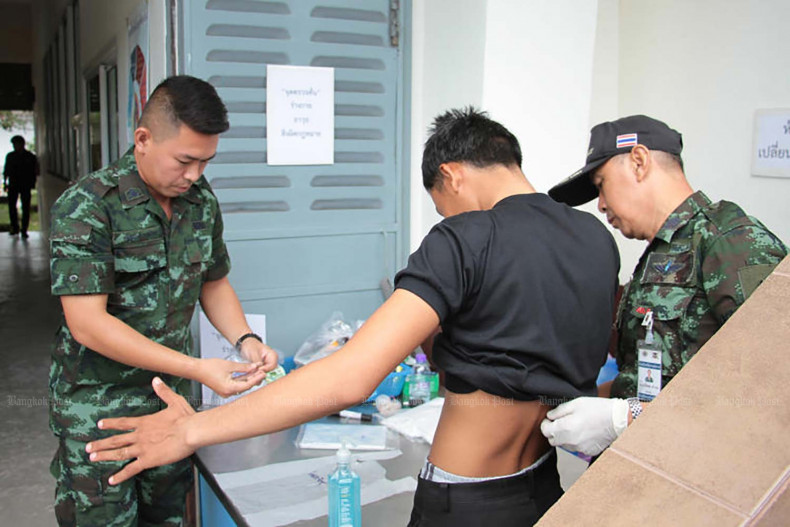CTN News – A government proposal to build drug rehab centers, known as Rakjai centers, at 52 army barracks across Thailand is raising human rights concerns among progressive human rights organizations.
Prime Minister Srettha Thavisin has written on social media about the country’s drug problems and the government’s plan to establish drug rehabilitation programs from military sites.
Since then, Defence Minister Sutin Klungsang has conducted meetings to examine the plan and determined that the centers will first serve 4,414 drug users in 85 districts across 30 provinces through 60, 90, or 120-day treatment programs.
Progressives, on the other hand, are concerned about the abuse of military-style drug recovery procedures.
Mentally Ill and Transgender people
According to Thissadee Sawangying, director of the Health and Opportunity Network, a military-run rehab center has operated for quite some time. She described the Civil Development Center as a facility for persons convicted of unlawful drug use.
Those arrested for the offense receive disciplinary training and are supervised by the military, she said. She questioned whether the government’s initiative will replicate the regimes of this center, which do not adhere to universal treatment principles.
Her concerns included the maltreatment of those with mental illnesses and transgender people.
She cited the allegations of transgender people at the center, claiming they were regarded as servants by men and reportedly mistreated by center officials. There are few professionals who understand the nuances of drug use in Thailand, she said without backing up her claims.
“It remains questionable whether the PM could ensure that users are treated by qualified personnel,” she went on to say. She also encouraged the administration to provide a clear set of criteria for enrolling drug users in the program.
As a result, she advocated for transparency and allowing the civil sector to exercise checks and balances. Furthermore, she stated that drug rehabilitation must be voluntary and based on universal harm reduction values and human rights standards.
“It is still a question why the military has to take charge of dealing with drug use while it is actually not the role of the military to do so,” she went on to say.
Thailand’s Long History with Drug Addiction
“What the PM needs to do is increase the capacity of the medical sector in drug treatments, such as their knowledge, staff and working closely with civil society, not militarising drug treatments,” she went on to say.
Gloria Lai, regional director of the International Drug Policy Consortium, expressed worry over the government’s decision to open drug rehabilitation facilities on military bases. Ms Lai stated that Thailand has a long history of drug-related violence and abuse, which continues today.
Following Thaksin Shinawatra’s announcement of a zero-tolerance narcotics policy, there was a lot of violence and abuse by both the military and law enforcement.
She stated that the military are not health professionals and should not be involved in providing public health services. “In addition, you have seen concerns of violence, including extrajudicial killings,” she went on to say. “So, I believe it is wrong for the military to play a larger role, especially in the provision of drug treatment services.
“If the proposal is for the military to take over more work, strong justification as to why that is necessary will be needed,” she said.
Dependency or consumption problems
Ms Lai applauded Thailand’s efforts to prevent harm with its new Narcotic Codes. However, she expressed worry that obligatory treatment for drug users remains in place. She stated that not all drug users require treatment, but rather those who are willing.
According to the United Nations Office on Drugs and Crime, approximately 10% of drug users may develop dependency or consumption problems. “I think harm reduction, if you are going to make it voluntary, means you have to allow people a degree of freedom and liberty to choose what they like,” she went on to say.
“You think of those who have diabetes, high cholesterol or high blood pressure, for example,” she said.
“It is up to them to decide whether or not to seek health services.
“If you are going to use a health-led approach, that means you cannot criminalise the activity any more.”
People can be discouraged from taking drugs without feeling compelled to do so, just as public safety campaigns discourage people from smoking or drinking excessively, she explained.






